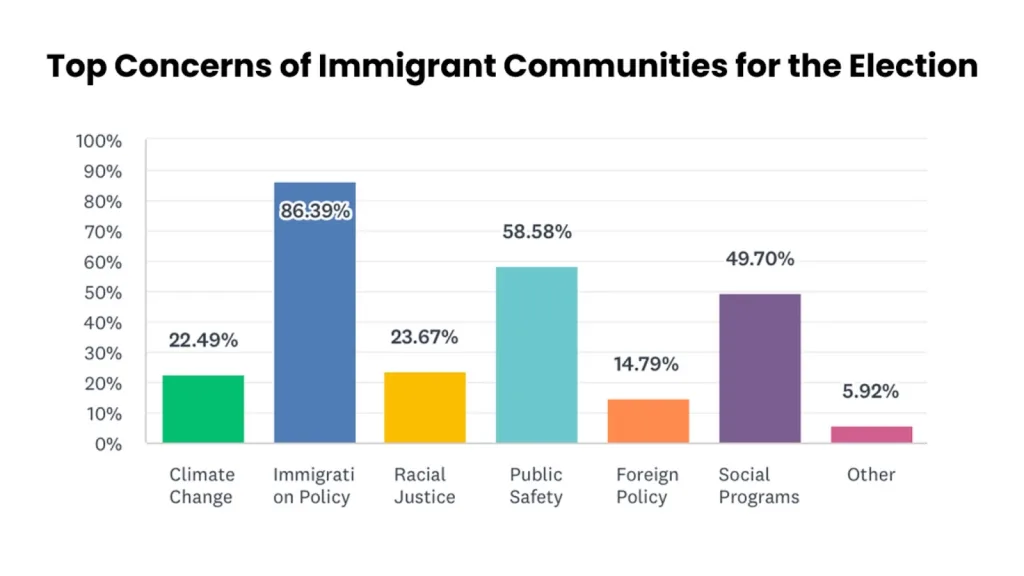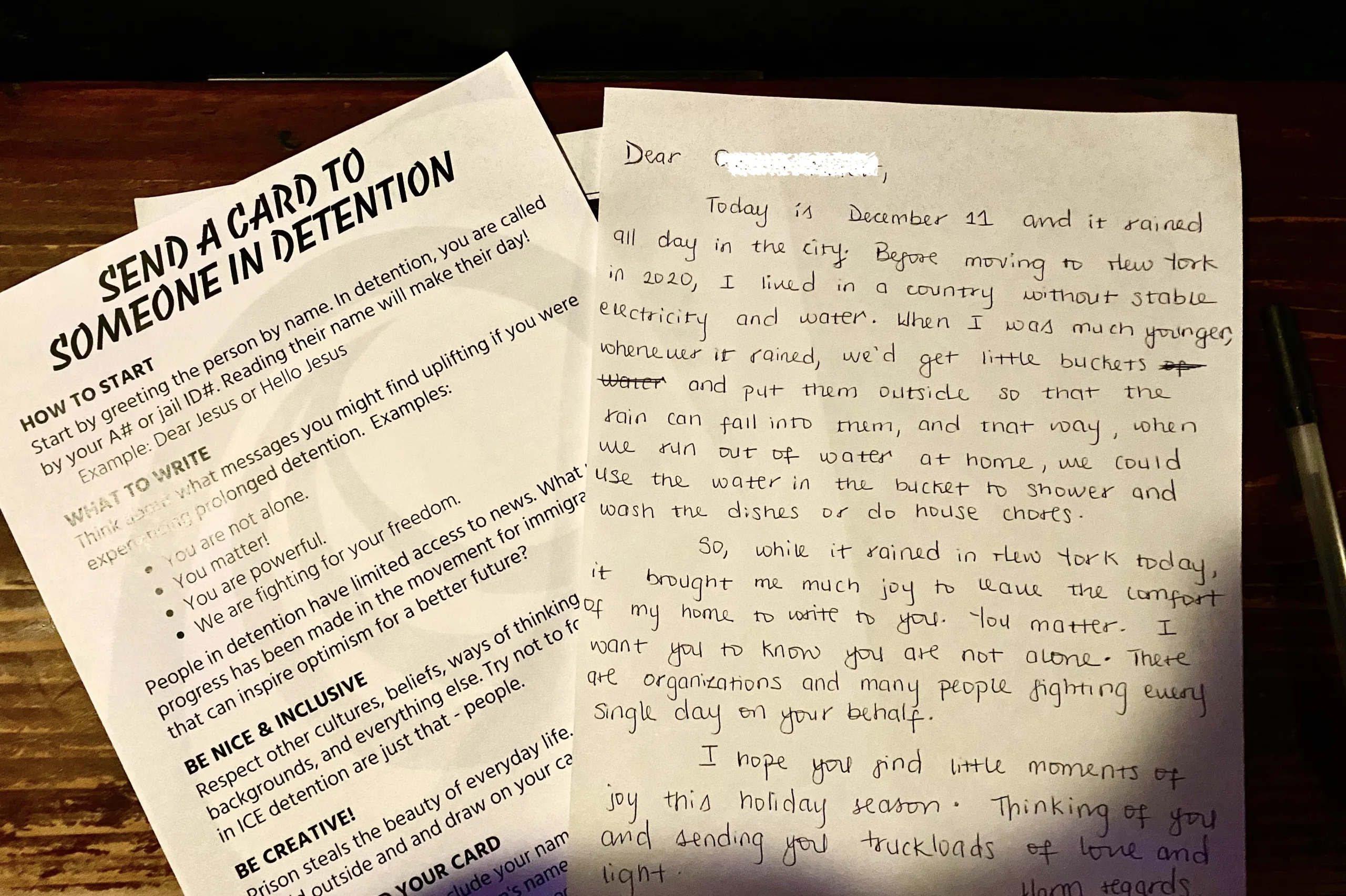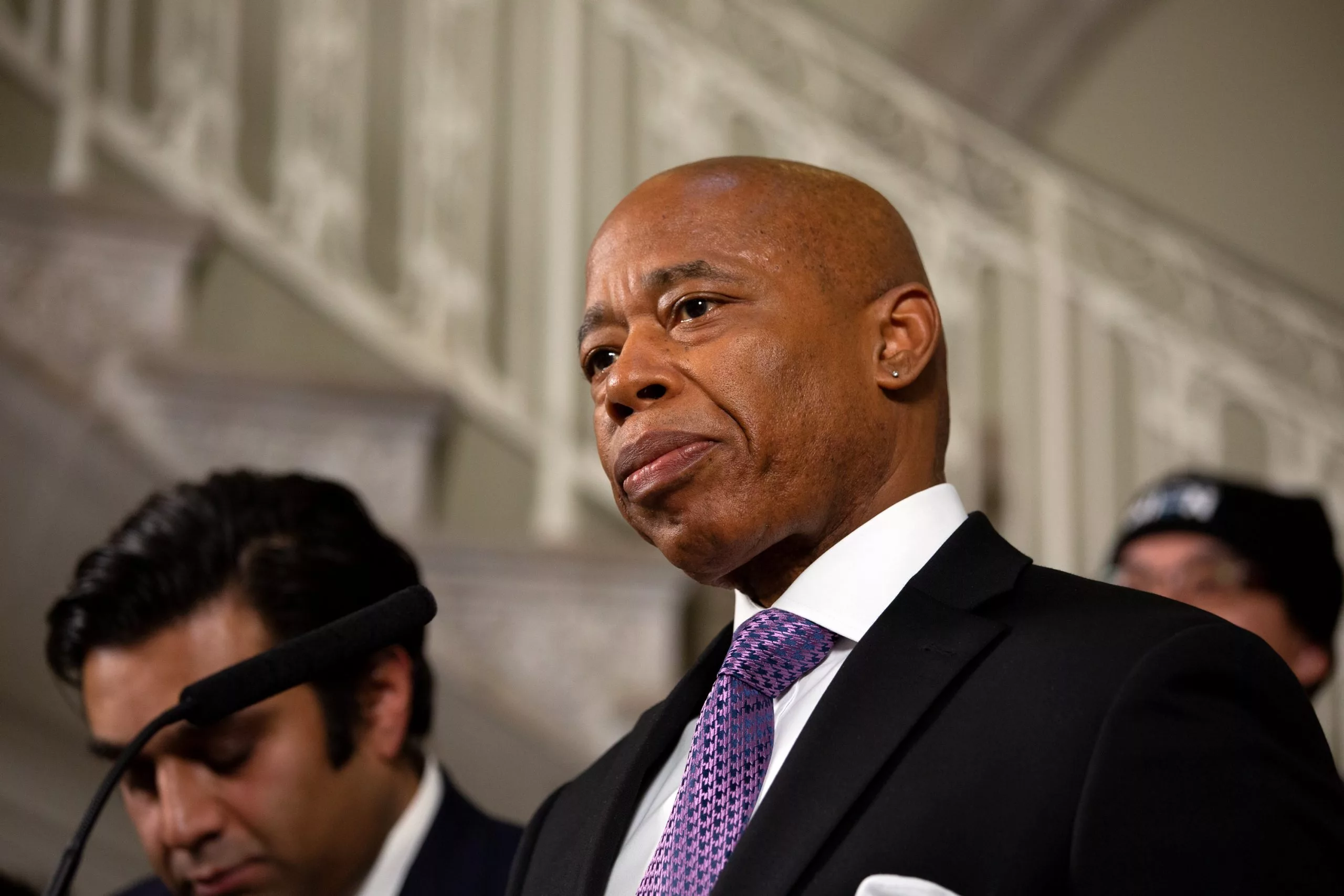In the 2024 presidential election, immigration has emerged as one of the leading issues important to voters. The Republican and the Democratic candidates, Donald J. Trump and Kamala Harris, have both campaigned on strict immigration measures to limit the number of immigrants coming to the U.S., with Trump going as far as promising a mass deportation under the Alien Enemies Act of 1798.
As election day approaches, Documented sought to understand which issues are most important to our Spanish-speaking immigrant audience. Most of the respondents cannot vote themselves but have a vested interest in the outcome of the election.
Also Read: “What’s Lacking Is Political Courage”
We surveyed 170 participants in Spanish through our WhatsApp channel, Semanal. Eighty-nine participants identified as asylum seekers who arrived in the United States within the past two years. Of those asylum seekers, 57 had some knowledge of Trump’s immigration policies, and 37 expressed concern about his criminalization and hostility toward migrants.
Among the responses, 18 wanted to know why Trump was against or hated migrants, while 11 responses asked for clarity on his stance on policies including asylum and who will be deported under his mass deportation plan. Asked what they wanted to know about Trump’s immigration policies, some respondents said:
- “Why is there so much hate against immigrants when they are really important for the country?”
- “Immigrants help support this country. Why don’t you give them opportunities to succeed?”
Lizet Echandia, 43, an asylum seeker who arrived in NYC from Venezuela in January was one of the respondents who is keeping a close eye on the presidential election, though she is unable to vote.
“I would like to know which president will be better for immigrants. I speak on behalf of all the immigrants because I know there are other countries who also have ongoing conflicts,” she shared in Spanish.
Echandia added that migrants want to contribute to the economy and that everyone in the hotel where she is staying wants to start working but are reluctant to break the law without getting their work permits first.
“If the immigrants are sent back, then this country will probably be empty,” she said, regarding Trump’s claims to deport all undocumented immigrants.
Other respondents wanted to know if Trump would create more employment opportunities and whether he would consider a merit-based immigration proposal to legalize undocumented immigrants in the U.S.
In comparison, 41 respondents said they did not know or were unfamiliar with Kamala Harris’ immigration policies. More than 66 percent wanted to know if Harris would support amnesty or a proposal to help undocumented immigrants legalize their status.
Others were more specific. Luna Martinez, 35, migrated from Nicaragua in 2022 and is currently seeking asylum. She wanted to know if the next president would continue the humanitarian parole for Nicaraguans, and extend Temporary Protected Status for people from the country.
“It would be good for them to give more opportunities to those who really want to succeed, and who come to work, and are uplifting their families,” she said. Martinez’ children, ages 8, 10, and 14, are still in Nicaragua.
Other questions from our audience for Harris included:
- “Would you follow the same immigration policies as President Biden?”
- “Would you consider legalizing immigrants who have been here for ten years or more?”
Documented also asked participants to select their top considerations in the upcoming election. Immigration policy was the highest selected topic, with 86 percent of participants selecting it, followed by public safety and social programs.

Other topics of interest include how a Harris or Trump administration would impact asylum, DACA, TPS, and border issues. Documented used these insights to create the following articles:
Border
Asylum
- Kamala Harris and Immigration: Her Record With Asylum Seekers
- What Happens To Migrants and Asylum Seekers if Trump Becomes President?
Deferred Action for Childhood Arrivals (DACA)
Temporary Protected Status (TPS)
While the responses from these 170 participants are valuable, they represent only a small fraction of the Spanish-speaking immigrant population in New York City. However, as the 2024 presidential election increasingly focuses on asylum seekers and undocumented immigrants as key issues for voters, these responses offer insight into how messages from both campaigns have played out in immigrant communities.















